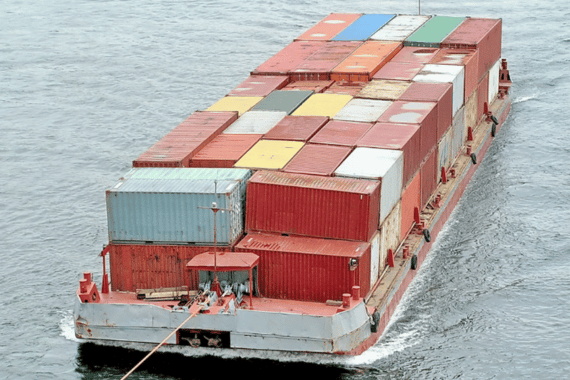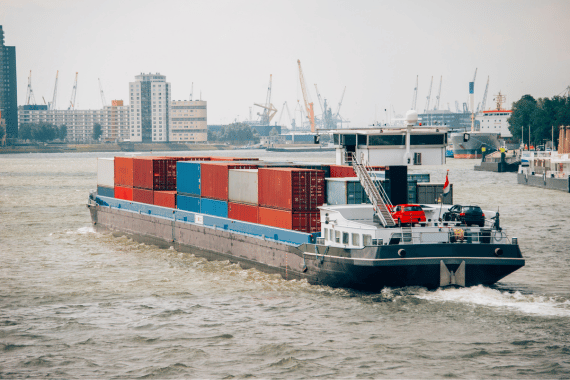- 0 Comments
- By admin
- Our Blog Services Related
- 101 Likes
Introduction.
Nigeria, the largest economy in Africa, is highly dependent on imports and exports, making its ports critical to the country’s economic growth. However, Unfortunately, the Nigerian ports have been struggling with congestion and inefficiencies for years, which has resulted in significant delays and increased costs for importers and exporters. One of the key solutions to decongesting Nigerian ports and improving the efficiency of the country’s logistics sector is to develop inland container shipping using barges. In this blog post, we will explore this solution in detail and how it can benefit the Nigerian economy.Firstly, it is essential to understand the problem of congestion in Nigerian ports. Nigerian ports are operating above their capacity, and the infrastructure is inadequate. This situation results in longer turnaround times, increased dwell times, and higher costs for importers and exporters. According to reports, the average time it takes to clear goods at Nigerian ports is about 20 days, compared to 10 days in other African ports.

Inland container shipping via barges is a practical solution to this problem. Barges are flat-bottomed boats used for transporting goods on rivers, canals, and other waterways. Barges are ideal for transporting containers as they have the capacity to carry a large number of containers and can travel to inland locations that are not accessible to larger vessels, with a potential to connect the country’s hinterland regions to its major ports, providing a more cost-effective and efficient way to move goods.
The Nigerian government has recognized the potential of inland container shipping via barges and has taken steps to encourage its development. In 2019, the Nigerian Ports Authority (NPA) launched a barge operation service at the Lagos Port Complex and the Tin Can Island Port Complex. The service is designed to move containers from the ports to designated barge terminals along the Lagos waterways. The NPA has also granted licenses to private barge operators to provide services to other ports in Nigeria.
Benefits.
One of the main advantages of inland container shipping via barges is that it can bypass the congested road network and reduce the number of trucks on the road. This, in turn, can reduce traffic congestion, improve air quality, and decrease wear and tear on the road infrastructure. Moreover, barges are more fuel-efficient than trucks, and they can carry larger volumes of cargo, reducing the overall cost of transportation. Additionally, barges are more environmentally friendly as they emit less pollution than trucks, making them a sustainable solution for container transport.Inland container shipping via barges can also reduce the turnaround time for ships at the ports. Currently, ships have to wait for days, sometimes weeks, to be offloaded due to the congested port facilities. By using barges to move containers from the ports to the hinterland regions, the number of trucks queuing at the ports can be reduced, and the time it takes to offload the ships can be shortened.

Challenges.
While inland container shipping via barges has the potential to decongest Nigerian ports and improve the efficiency of the country’s logistics sector, there are also some challenges that need to be addressed. Some of the most significant challenges include:- Shallow Water Depth: The inland waterways need to be dredged regularly to accommodate barges all year long.
- Limited Network: Inland container shipping using barges is limited to areas with access to inland waterways, which means it is not available in all regions.
- Dependence on Weather: Inland container shipping using barges is heavily dependent on weather conditions, which can impact the navigation of barges and cause delays.
- Infrastructure Limitations: Inland container shipping using barges requires the availability of adequate infrastructure, such as ports, barge terminals and container handling equipment, and waterways, which can limit its availability in some regions.
- There is also a need for regulatory frameworks to ensure safety and security on the waterways.


Leave Your Comment